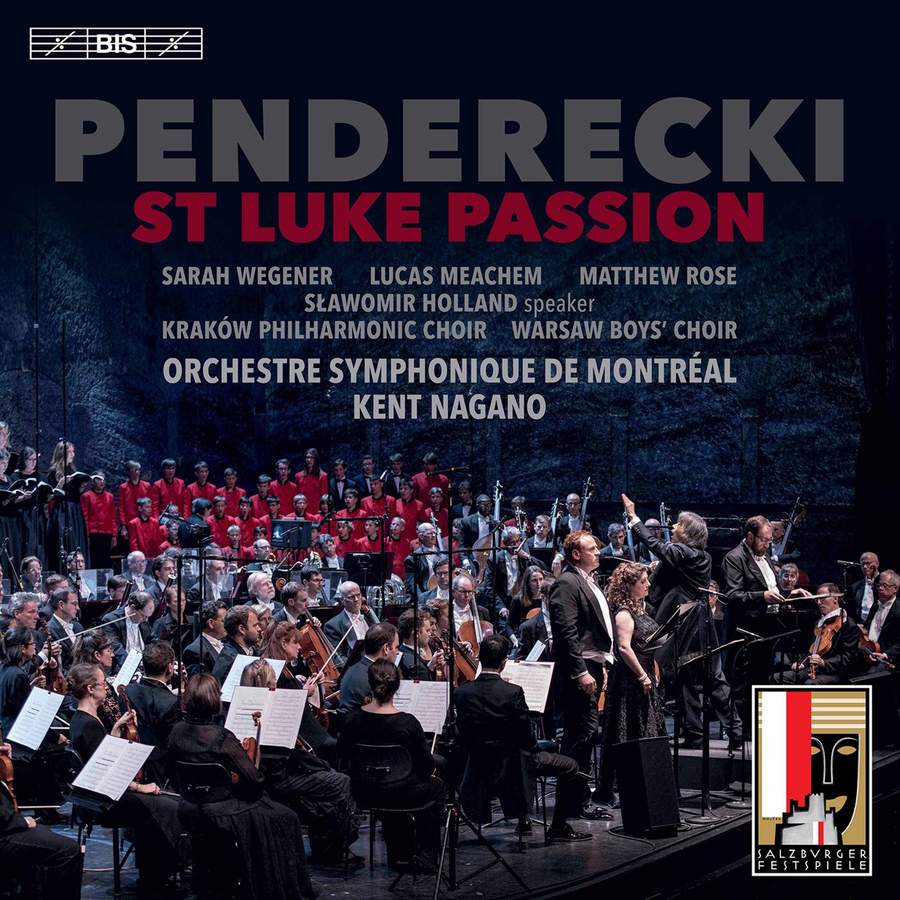Penderecki’s Passion: a new recording

Krzysztof Penderecki
St. Luke Passion
BIS Records
Sarah Wegener, soprano; Lucas Meachem, baritone; Matthew Rose, bass
Sławomir Holland, speaker
Warsaw Boys’ Choir; Kraków Philharmonic Choir
Orchestre symphonique de Montréal, Kent Nagano, conductor
Krzysztof Penderecki’s St. Luke Passion (1966) garnered international acclaim that raised the composer’s stature substantially. Penderecki had a long relationship with the Orchestre symphonique de Montréal, appearing with them a number of times as a guest conductor from 1979-2015. The orchestra gave the Canadian premiere of St. Luke Passion with Nagano conducting. This live recording was made at the Felsenreitschule Salzburg Festival in July, 2018 with the composer in attendance.
At the time of its premiere, there also were undercurrents of criticism on two fronts. The musical avant-garde pilloried Penderecki for his eclecticism, which ranges from triads to twelve-tone rows (two are used in the piece) to cluster chords and a prominent use of the B-A-C-H motive. In retrospect, one can evaluate the work as a precursor to the polyglot postmodern assemblages of the 1970s. Others decried the use of such devices in a liturgical piece of music. Despite these critiques, the work has weathered well.
Throughout, there is a powerful sense of declamation by both the soloists and chorus. Soprano Sarah Wegener’s voice supplies thrilling high notes with abandon while baritone Lucas Meachem displays a richly powerful voice and bass Matthew Rose an impressive lower register. Perhaps most impressive is Slawomir Holland’s potent delivery as a speaker. The choruses are superlatively well prepared, their singing mixing thick chords and stentorian high notes as well as swirls of group spoken word passages. Concomitantly a fluidity between styles and idioms prevails.Sprechstimme morphs quickly into detailed harmony, micropolyphony mixes with quotation and tonal signatures.
Nagano leads the Montréal musicians through an assured and nuanced account of the score. In the wake of Penderecki’s passing, this recording comes at a propitious time to reevaluate his compelling early work.
-Christian Carey